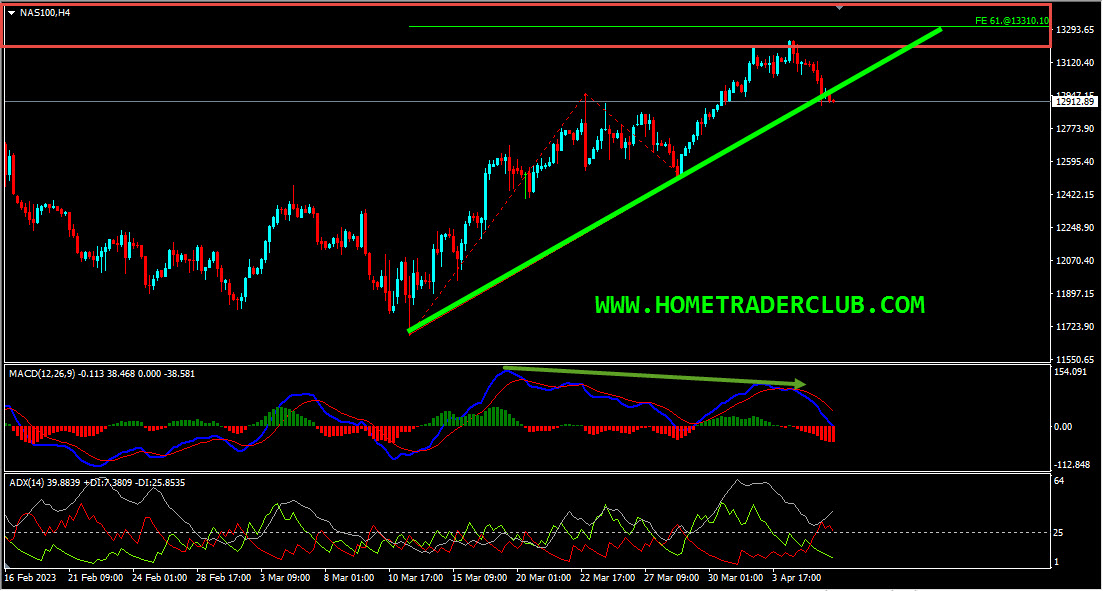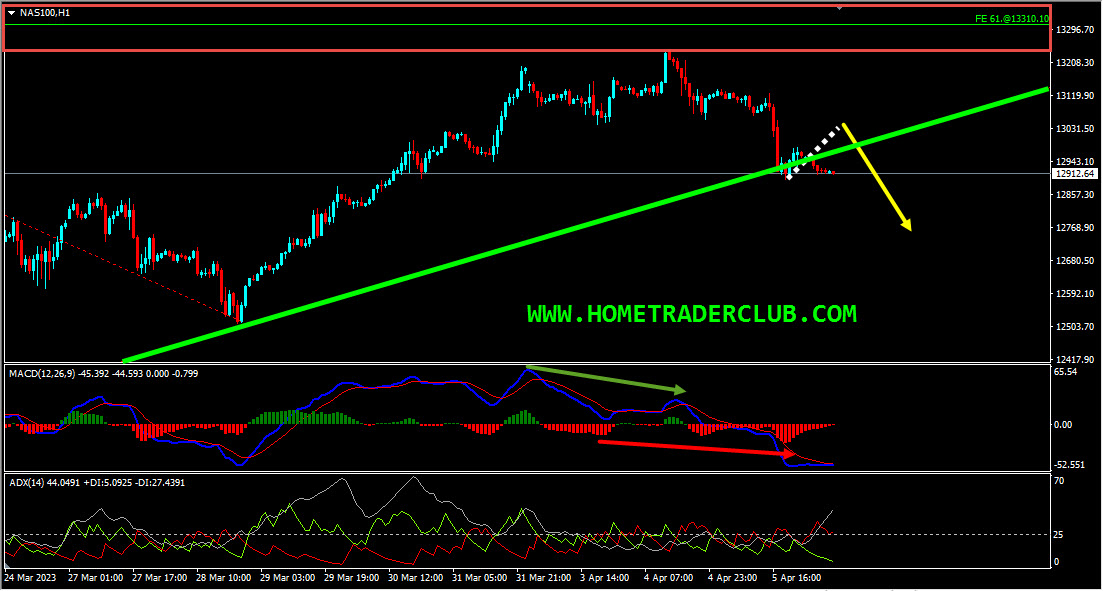
Hi Traders! NASDAQ short-term forecast and technical analysis is here. The way I would like to analyze the chart for setups is based on multi-timeframe confirmations because in my POV if we get more evidence on different timeframes for the same direction then it makes the setup much more reliable. If you would like to learn more about the way we trade and the technical analysis we use then check out the Home Trader Club Spoiler alert – free memberships are available! Let’s start our analysis from the highest timeframe which will be the H4 chart here.
NASDAQ H4(4 Hours) Chart Analysis – Key Resistance Zone, Bearish Divergence, ADX Indicator, Uptrend Line Breakout
On the H4 chart, the price reached a key resistance zone that has formed based on the 61.8%(13310.10) Fibonacci expansion level of the first wave. The price respected this zone and is currently bouncing lower from it. Also, we have a bearish divergence that has formed between the first high formed at 12441.14 and the second high formed at 13235.24 based on the MACD indicator which we may consider as evidence of bearish pressure. In addition to this, the ADX indicator gave a bearish signal here at the cross of -DI (red line) versus +DI (green line) and the main signal line (silver line) reads a value over 25 which we may consider as another evidence of bearish pressure. Also, the price which is moving lower has broken below the most recent uptrend line which we may consider as yet another evidence of bearish pressure. So everything looks good here for the bears and we may now move down to one timeframe lower and look for evidence supporting this short-term bearish view.
NASDAQ H1(1 Hour) Chart Analysis – Bearish Convergence, ADX Indicator
On the H1 chart, we could see that the price which was moving higher has created a bearish divergence between the first high that formed at 13195.99 and the second high that formed at 13235.24 based on the MACD indicator. The price then moved lower and broke below the last low at 13043.74 creating lower lows, thus forming a classical setup of bearish divergence followed by bearish convergence, we may consider these as evidence of bearish pressure. Generally, after a bearish convergence, we may look for corrections and then a further continuation lower. Currently, it looks like a correction is happening. In addition to this, the ADX indicator gave a bearish signal here as well at the cross of -DI (red line) versus +DI (green line) and the main signal line (silver line) reads a value over 25 which we may consider as yet another evidence of bearish pressure. Until the key resistance zone (marked in red) shown in the image below holds my short-term view remains bearish here and I expect the price to move lower further after pullbacks.
Trading Tips
It is always recommended to look for confirmations before you jump into any trade. If you are not sure about how to trade this short-term sell setup then you can use any setup and strategy that you have in your arsenal to look for bearish moves and join this sell trade.
Also, don’t forget to protect your sell trade using a stop loss and make sure to set a target and keep a proper risk/reward ratio.
You will also find a pretty extensive database of educational materials here in the blog – just use the search or check out the Forex Education section above.
Not sure how to enter a trade? Spot reversals (bounces)? Not sure how to spot breakouts?
I invite you to
And improve your trading with us.
Also, you can get one of our strategies free of charge. You will find all the details here
Download our best forex indicators here
If you have any further questions, don’t hesitate to drop a comment below!
Happy Trading!
Arvinth Akash
Home Trader Club Team.















